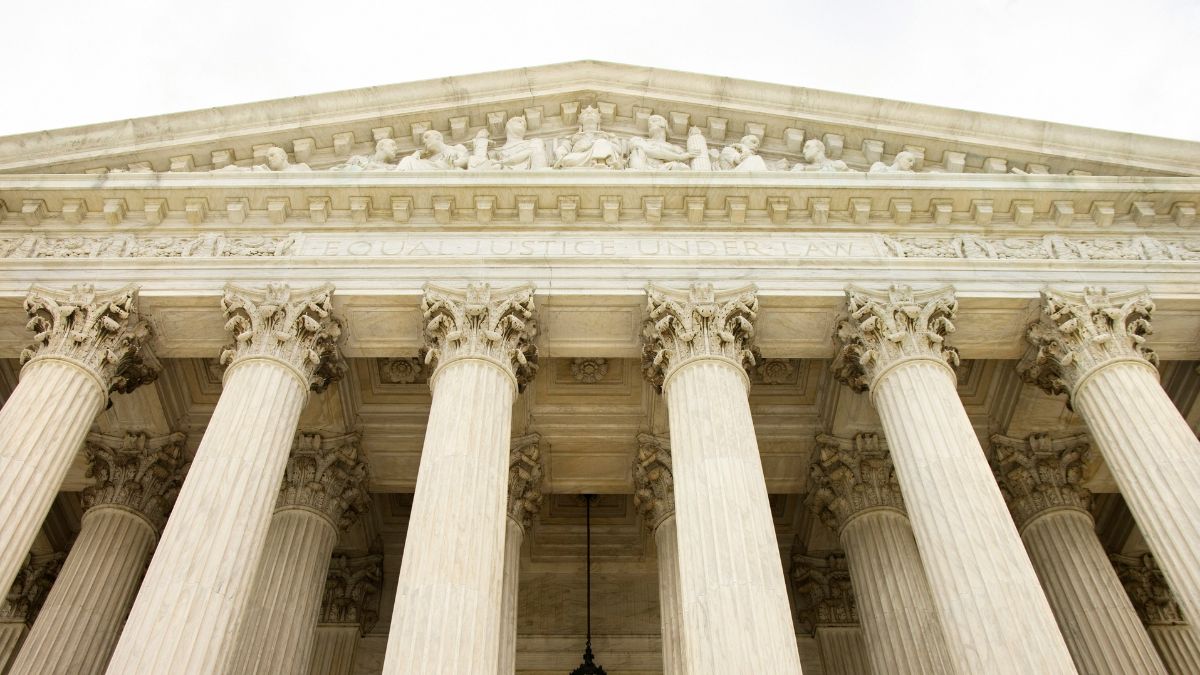

What Happened at the Supreme Court
Three cases that will be consequential for years to come.
07/22/24
John Stonestreet and Jared Hayden

Though perhaps not as monumental as 2022, when Roe v. Wade was overturned, this year’s term for the United States Supreme Court has been significant. In particular, the Court’s decisions in three cases will be consequential for years to come.
The first, Donald Trump v. United States, dealt with charges against Trump for “spreading knowingly false claims of election fraud.” In its opinion, the Supreme Court ruled that the president has “presumptive” immunity for any official duty carried out under constitutional authority. The decision did not, however, determine which of the former president’s actions were official or unofficial duty. Thus, the Court kicked the specific charges against President Trump back to the lower courts.
Contrary to claims that the Court has now placed the president above the law in any and every case, the ruling permits prosecution of the president and reinforces the separation of powers necessary for the executive office. The Court placed the burden of proof on prosecutors to show that an action falls outside the official duties of a president as granted by the Constitution. By doing so, the Court protects the executive branch by ensuring that the president cannot be tried arbitrarily.
The second case, Loper Bright v. Raimondo (paired with another case Relentless v. Department of Commerce) also reinforced the separation of powers by weighing in on the authority of administrative agencies to interpret law. In this case, the Court overturned the notorious doctrine known as “Chevron deference,” a judicial standard that deferred to agencies to interpret for themselves the standards that govern them. This doctrine has led to a lot of problems, especially a lack of accountability for government agencies. In effect, presidents were given “functional” lawmaking power and agencies became fully partisan actors.
With this doctrine overturned, power is returned to the Courts and Congress to make law. Agencies can no longer interpret laws however they want. Instead, Congress must delineate an agency’s power in federal statutes, and courts can hold agencies accountable. This will also make Congress more accountable. No longer can members of Congress say, as Nancy Pelosi famously did about Obamacare, “We have to pass the bill, so that you can find out what is in it.” Likewise, executive orders and agency rules cannot “stretch” the rules when it comes to interpretations of federal statute. Instead, the onus is on Congress to legislate what specific authority agencies actually possess.
Hopefully, this will lead to fewer cases like Little Sisters of the Poor and Hobby Lobby in which government agencies notoriously interpreted the law to suit their progressive, anti-life values and punished those who did not comply.
Though less related to separation of powers, the Court’s ruling in a third case, City of Grants Pass v. Johnson, will empower local governments to protect the public safety of their communities. In this case, the small city of Grants Pass, Oregon, was sued for issuing a “camping ban” ordinance that would fine and jail the homeless. In its ruling, the Supreme Court upheld the city’s ordinance, empowering countless cities with similar ordinances to enforce them. Overall, this should help cities ensure the public safety of their residents, something many cities have struggled to do in recent years.
Also consequential was the Court’s decision to dismiss FDA v. Alliance for Hippocratic Medicine, a case challenging the Biden Administration’s loosening of regulations for birth control. While the dismissal is certainly discouraging, this is not the last case the court will be asked to hear regarding birth control.
Even the Court’s upcoming term is shaping up to be consequential. Last month, it announced that it will hear United States v. Skrmetti, a case about whether the state of Tennessee can prohibit “gender affirming care” for minors. This case will have significant implications for the health and wellbeing of children.
As the Court continues to weigh in on important matters that touch the lives of all Americans, let’s continue to keep the Justices in our prayers.
This Breakpoint was co-authored by Jared Hayden. If you’re a fan of Breakpoint, leave a review on your favorite podcast app. For more resources to live like a Christian in this cultural moment, go to breakpoint.org.
Have a Follow-up Question?
Up
Next















